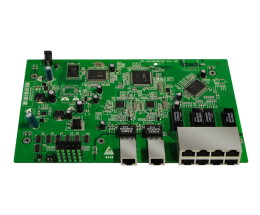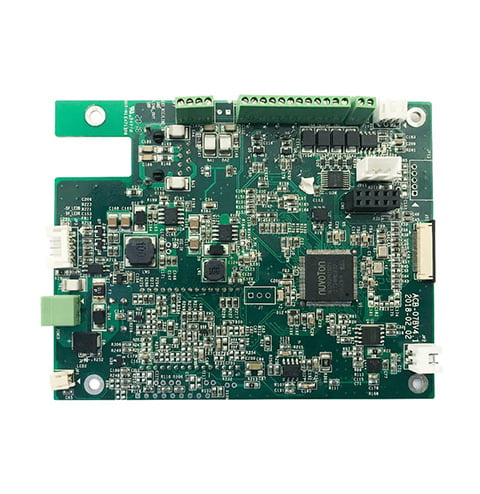PCB Assembly in Australia: Top Providers and Services
If you are looking for high-quality PCB assembly services in Australia, you have come to the right place. PCB assembly is a critical process in the production of printed circuit boards, and it involves the assembly of electronic components onto the board. The quality of the assembly process directly impacts the performance and reliability of the final product.

There are several PCB assembly service providers in Australia that offer a range of services, from PCB design and prototyping to full-scale production. These companies use the latest technology and equipment to ensure that your PCBs are assembled to the highest standards. They have experienced technicians who are trained to handle complex PCB assembly projects and can work with a variety of materials, including surface-mount technology (SMT) and through-hole technology (THT).
When choosing a PCB assembly service provider in Australia, it is important to consider factors such as quality, cost, and turnaround time. You should also look for a provider that offers a range of services, including design, prototyping, and production. With the right PCB assembly service provider, you can be sure that your PCBs will be assembled to the highest standards and meet your exact specifications.
Overview of PCB Assembly in Australia

If you are looking for high-quality PCB assembly services, Australia has a range of companies that can help. PCB (Printed Circuit Board) assembly is a crucial process in the manufacturing of electronic devices, and it is important to find a company that can meet your specific needs.
In Australia, PCB assembly services are available from a variety of companies, ranging from small businesses to large-scale manufacturers. These companies offer a range of services, from design and prototyping to full-scale production runs. Some companies specialize in certain types of PCBs, such as those used in medical devices or aerospace applications.
When choosing a PCB assembly company in Australia, it is important to consider factors such as experience, quality control, and customer service. Look for a company that has a proven track record of delivering high-quality PCBs on time and within budget. A company with a strong focus on quality control will help to ensure that your PCBs meet the necessary specifications and standards.
In addition to PCB assembly services, many companies in Australia also offer related services such as PCB design, testing, and repair. Some companies also offer value-added services such as component sourcing and supply chain management.
Overall, Australia is a great place to find high-quality PCB assembly services. With a range of companies to choose from, you are sure to find a company that can meet your specific needs and deliver the high-quality PCBs you need for your electronic devices.
Key Players in the Australian PCB Assembly Market

When it comes to PCB assembly in Australia, there are several key players in the market. These companies provide a range of services to customers, including prototyping, high-volume production, and more. In this section, we’ll take a closer look at some of the top companies operating in the Australian PCB assembly market.
Local Manufacturers
One of the biggest advantages of working with local PCB manufacturers is their ability to provide quick turnaround times. Local manufacturers are often able to deliver prototypes and small production runs in a matter of days, rather than weeks. Additionally, working with a local manufacturer can help ensure that your PCBs are produced to the highest quality standards.
Some of the top local PCB manufacturers in Australia include:
- New Honest Group: New Honest Group is a leading provider of PCB assembly services in Australia. The company offers a range of services to customers, including PCB design, assembly, and testing. With a focus on quality and customer satisfaction, New Honest Group is a trusted partner for many businesses in Australia.
- PCB Fast: PCB Fast is another top local PCB manufacturer in Australia. The company specializes in quick-turn PCB assembly services, with a focus on providing fast turnaround times and high-quality products. PCB Fast also offers a range of other services, including PCB design and layout, prototyping, and more.
International Partnerships
In addition to local manufacturers, many businesses in Australia also work with international partners to meet their PCB assembly needs. Working with an international partner can provide access to a wider range of services and capabilities, as well as lower costs in some cases.
Some of the top international PCB assembly companies that operate in Australia include:
- Jabil: Jabil is a global leader in PCB assembly and electronics manufacturing. The company has a strong presence in Australia, with several manufacturing facilities located throughout the country. Jabil offers a range of services to customers, including design, prototyping, testing, and more.
- Flex: Flex is another top international PCB assembly company that operates in Australia. The company specializes in high-volume production runs, with a focus on providing cost-effective solutions to customers. Flex also offers a range of other services, including design, prototyping, and testing.
Technological Advancements in PCB Assembly
As technology continues to develop, the printed circuit board (PCB) assembly industry is evolving alongside it. Automation and robotics, as well as surface mount technology (SMT), are two areas where significant advancements are being made.
Automation and Robotics
Automation technologies are changing the landscape of PCB assembly in Australia. As PCBs become more complex and demand increases, manufacturers are turning to automation to improve efficiency and reduce costs. Automation and robotics are being used for various stages of the assembly process, including soldering, inspection, and testing.
One significant advantage of automation is the ability to improve quality control. Automated systems can detect defects and errors that may be missed by human operators. This results in a higher level of precision and accuracy in the final product.
Surface Mount Technology (SMT)
Surface mount technology (SMT) is a method of assembling PCBs that involves mounting components directly onto the surface of the board. This method has become increasingly popular in recent years due to its improved efficiency and reduced costs.
One advantage of SMT is the ability to mount smaller components onto the board, resulting in a higher density of components and a smaller overall board size. SMT also allows for faster assembly times and reduced manual labor.
In addition, SMT has enabled the development of new technologies, such as wearable devices and flexible PCBs. These technologies require smaller and more flexible boards, which can be achieved through the use of SMT.
Overall, automation and robotics, as well as surface mount technology, are two areas where significant advancements are being made in the PCB assembly industry in Australia. As technology continues to develop, it is likely that we will see further advancements in these areas, leading to improved efficiency, accuracy, and quality control.
Regulatory Standards and Compliance
When it comes to PCB assembly in Australia, there are several regulatory standards that must be adhered to. This is to ensure that the products being produced are safe for consumers and the environment. In this section, we will discuss two of the most important regulatory standards: Quality Assurance and Environmental Regulations.
Quality Assurance
Quality assurance is an essential aspect of PCB assembly. It ensures that the products being produced meet the required standards and specifications. One of the most widely recognized standards for quality assurance is the ISO 9001 certification. This certification focuses on quality assurance and customer satisfaction. PCB manufacturers who have achieved ISO 9001 certification demonstrate their commitment to meeting customer requirements, continuous improvement, and adherence to defined processes. This certification is essential for PCB assembly companies to demonstrate their commitment to quality assurance.
Environmental Regulations
Environmental regulations are also crucial in PCB assembly. In Australia, the main environmental regulation is the National Pollutant Inventory (NPI). The NPI is a national database of pollutant emissions from different industries, including PCB assembly. PCB assembly companies must ensure that they are not emitting any harmful pollutants into the environment. They must also ensure that they are disposing of any waste products in an environmentally friendly manner.
To comply with environmental regulations, PCB assembly companies must use lead-free solder. This is because lead is a hazardous substance that can cause environmental damage. Lead-free solder is a safer alternative that is more environmentally friendly. PCB assembly companies must also ensure that they are recycling any waste products, such as old PCBs, in an environmentally friendly manner.
Regulatory standards and compliance are essential in PCB assembly in Australia. Quality assurance and environmental regulations are two of the most critical aspects of regulatory compliance. PCB assembly companies must ensure that they are adhering to these standards to produce safe and environmentally friendly products.
Challenges and Opportunities
Supply Chain Management
One of the biggest challenges facing PCB assembly in Australia is supply chain management. With the increasing demand for electronics, it is becoming more difficult to source high-quality components at a reasonable cost. This is particularly true for specialized components that are not widely available.
To overcome this challenge, you need to work with suppliers that have a good reputation for quality and reliability. You should also consider diversifying your supply chain to reduce the risk of disruption. This means working with multiple suppliers for critical components.
Innovation and R&D
Innovation is key to staying competitive in the PCB assembly industry. With the rapid pace of technological change, you need to be constantly looking for ways to improve your processes and products. This requires a strong commitment to research and development (R&D).
Investing in R&D can be challenging, particularly for smaller companies. However, it is essential if you want to stay ahead of the curve. You should consider partnering with universities or research institutions to access the latest technology and expertise.
In addition, you should be open to new ideas and willing to experiment with new materials and processes. This may require a significant investment of time and money, but it can pay off in the long run by helping you to develop new products and gain a competitive edge.
Overall, the challenges facing the PCB assembly industry in Australia are significant, but there are also many opportunities for those who are willing to invest in innovation and supply chain management. By staying ahead of the curve and constantly looking for ways to improve your processes, you can position yourself for success in this rapidly evolving industry.






